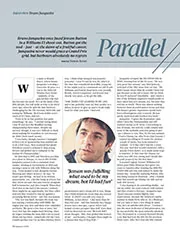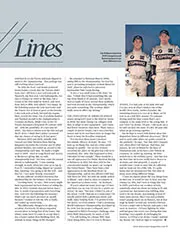“It’s very competitive this level, and it doesn’t take much to be off – and if you are, you can be well off.”
Once again the Brazilian proved himself in a difficult situation. Drugovich regrouped, returned to MP, and has been nothing short of scintillating in 2022. He’s won four races so far this season and leads the title fight by 21 points.
MP has never before won this many races with two drivers in a single season, never mind one, and the Brazilian has added consistency to his game also – since his four wins, which all came early this season, he finished outside the top five just twice in the proceeding ten races.
“One thing I changed massively is the approach and trying to be more consistent this year,” he says. “And for sure, it worked and helps. As soon as you have a baseline then you can build up and be better everyday.”
This strengthened his grip on the prospective title as the season came into its final stages, but does anyone care?
It speaks volumes about F1’s apparent awareness of Drugovich that he’s been mentioned in IndyCar broadcasts as a potential new driver on the scene, but barely at all in the world of grand prix racing.

Celebrating Monaco feature race win this year
DPPI
Why is he being ignored in relative terms? The answer is difficult to ascertain, but does seem to some degree to be linked in trends and fashions in F1.
Grand prix racing is becoming ever more conservative in its driver choices, only going for drivers that have come up the European junior ladder. The idea of a driver coming into F1 from IndyCar or other disciplines used to be reasonably common place – now it’s treated as a novelty.
“It appears for even the best drivers that no F1 academy affiliation equals no chance”
However, for many blazing a trail up the junior ladder system, even that isn’t enough, as Drugovich appears to be showing. Unless you have a huge budget to accompany you, as was the case with Nikita Mazepin, Zhou Guanyu or Nicholas Latifi, drivers have to have to be part of an F1 team’s junior academy to be considered.
As Drugovich says, it appears for even the best young drivers that no F1 academy affiliation is equal to no chance, or at least very little. You might win F1’s main feeder series by 69 points, but racing’s top tier still isn’t interested (as far as the public is largely made aware).






